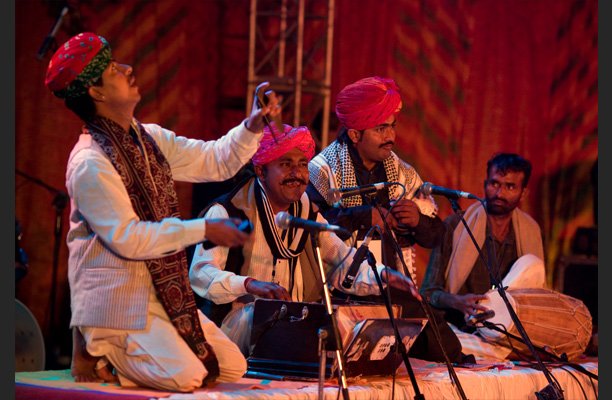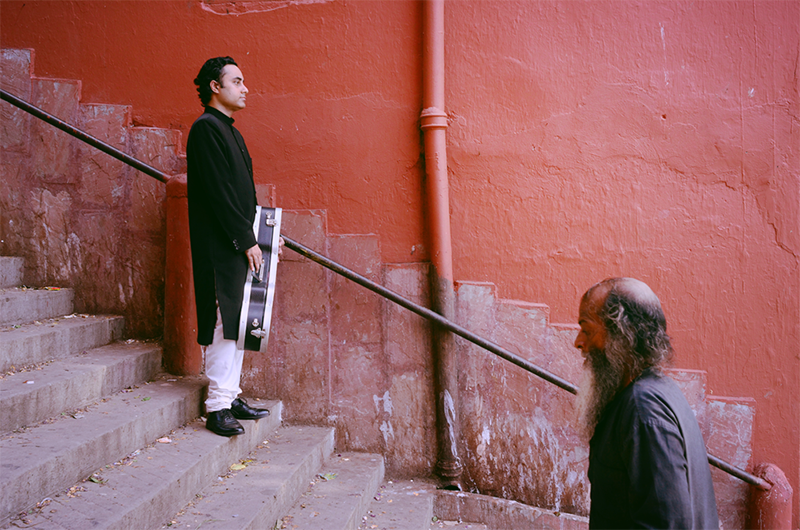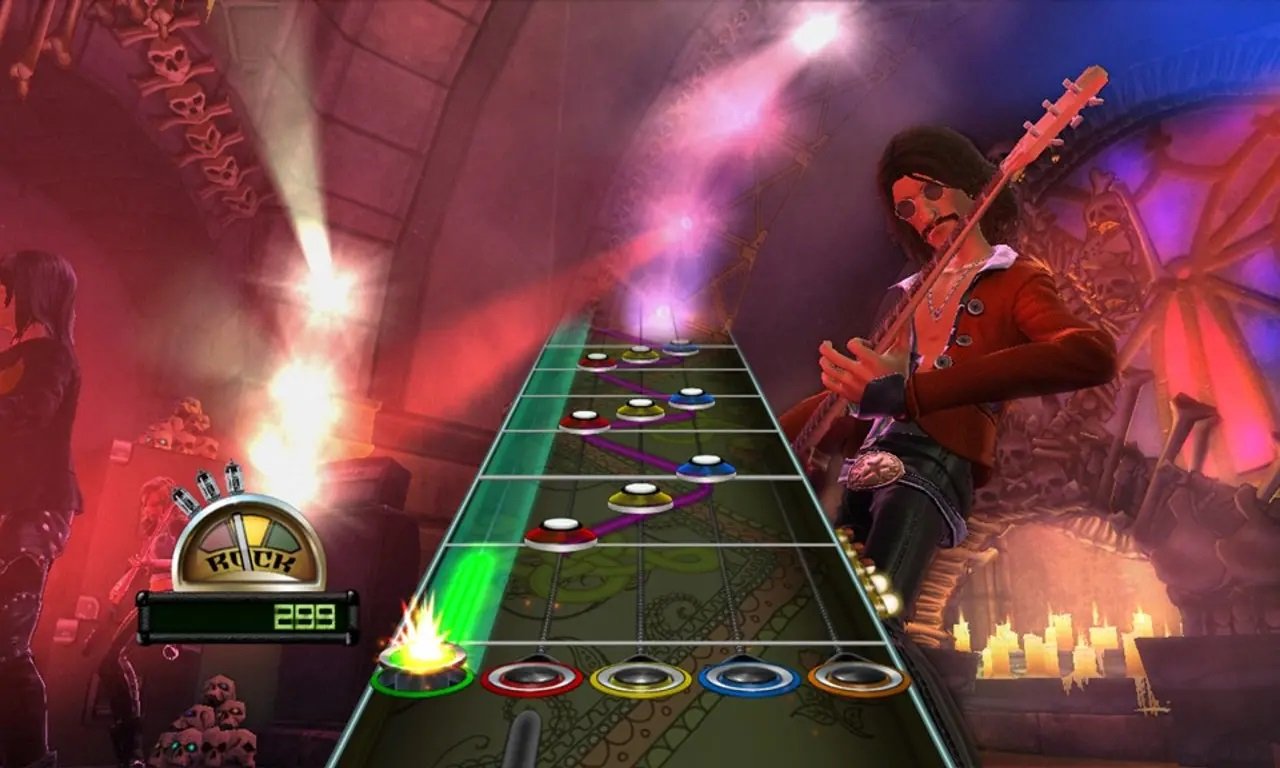India –
Blending an emphatically distinguishable medley of traditional and contemporary sounds, the Barmer Boys underline eclecticism as they infuse harmonies from instruments like the morchang, bhapang and khartaan with much-forgotten relevance. Mangey Khan, Rais Khan and Magda Khan reinvigorate Indian folk melodies and defy generic musical clamor as they talk to Emaho about their motivation, potential experimentation and their role in the continuance of a visibly fading portion of the Indian aesthetic repertoire.
Emaho : The Barmer Boys have effectively caused folk and oral Indian music to come to the forefront in all its intricacies. Did all of you hail from a history of traditional musical influences?
We come from a culture steeped in the folk and traditional music styles of western India. Our rich musical history is deeply rooted in our villages and communities, and continue in practice to this day. We (Manganiyars, or the Merasi) have been performing music for the past four centuries, so yes, there is definitely a deep history of musical influences.
The Barmer district is in southern Rajasthan and borders Kutch in Gujarat and Sindh province in Pakistan to the west. It is the westernmost outpost of India, a desert state with unique geography and climate, a land rich with nomadic traditions, a place where different cultures, languages and religions have coexisted and flourished for centuries, and that enjoyed the patronage of various independent kingdoms and princely states in the past.
Rajasthani music is actually a homogenizing term that encompasses several distinct regional styles, and Barmer has its own distinct sound. The northern regions have a more structured, defined (shall we say restrained) sound closer to the classical tradition, while in the south of the state, we have a confluence of musical styles from Sindh (e.g. Sufi), Kutch (e.g. Garba), and Rajasthan (e.g. Panihari folk songs), with a distinct upbeat rhythmic influence.
Emaho : What inspired your musical beginnings? How have the messages in your music transformed over the years?
It is customary for the children in the Manganiyar communities to learn music from a young age. A hereditary tradition, we learnt the songs and music from elders in our families, and were inspired by the great musicians from Rajasthan. As a band—Barmer Boys—we first performed at the Amarrass Desert Music Festival in 2011.
The message in our music has really not changed – we sing for peace, we sing the stories of the great warriors of the region, love songs, songs of a spiritual nature, songs that comment on social issues that have prevailed over the ages.
 Image © Findlay Kember
Image © Findlay Kember
Emaho : Would you qualify certain aspects of your songwriting process as unique? Could you elaborate on that?
Yes, considering that most of us can barely read or write! We work with components of rhythm and melody, timing and improvisation. It is an oral process, in line with the oral tradition of songs handed down the generations.
Emaho : The range of genre your music reflects is quite baffling: from Sufi qawwalis to celebratory drinking or wedding songs. Thematically, creatively, how do you align yourself to the changes?
It comes naturally over years of practice and later performing at different occasions. Our music does indeed span a broad range of styles, and incorporates elements of qawwali, Sufi devotional songs, and folk tales of the region. In the village, we often perform at weddings and celebrations, and our music maintains a strong connection to local traditions, customs and to the region—the earth, the environment, the changing seasons..
Emaho : In an incredibly short time (three years), The Barmer Boys have become iconic in the Indian independent music scene. Has the reception been to your satisfaction?
We debuted in November 2011 at the Amarrass Desert Music Festival and were on MTV Coke Studio in September 2013. We now embark on our first US tour in April. So yes, the reception has been quite satisfactory, although there is still a lot more to aspire to.
Emaho : You combine the most profound of indigenous Indian melodies with contemporary aspects such as beatboxing and sometimes a live DJ set. That must be especially challenging. Has that always been part of your intent?
It has been fun learning from, listening to and working with other musicians, musical styles and sounds from around the world. Yes, the intention has always been to make music that is interesting and fun to play and the various collaborations we have done with the greats from Africa such as Vieux Farka Toure, Bombino and Madou Sidiki Diabate, British folk stars Mumford and Sons, Turkish psychedelia pioneers BaBa ZuLa, and jams with touring groups such as The Gypsy Allstars have all been wonderful experiences. Some great music has come out of these.
For us, the biggest challenge in all this is for us to get together with musicians, meet them. Once we are together, that’s when the fun happens!!
Emaho : Do you feel local and folk music still speaks to people in the current age?
Yes it does. What we are trying to do is to break the stereotype that folk has been typecast in—typically reduced to a cultural mascot. We feel and have proved over the last couple of years that Folk ROCKS! There’s soul in this music. We want to make our music accessible to a younger audience, and that’s the reason we experiment with contemporary forms of music. Our songs and stories remain relevant and we need to present them in a form that engages with the next generation.
Emaho : Do you look towards more experimental leanings in your future endeavors?
Definitely. We are always on the lookout for opportunities to interact with other musicians and are excited about several project that we are working on currently. This Saturday (March 15) we present a dub techno collaboration that we hope to take to dancefloors across the world: Barmer Boys + DJ Spincycle.
Emaho : What do you think is the state of Indian independent music at this time? Are you hopeful about it?
It is quite interesting… yes, we are quite hopeful… after all, ummeed par to duniya bhi khayam hai (hope makes the world go on).
Art & Culture Interviewed by – Shreya Bose











